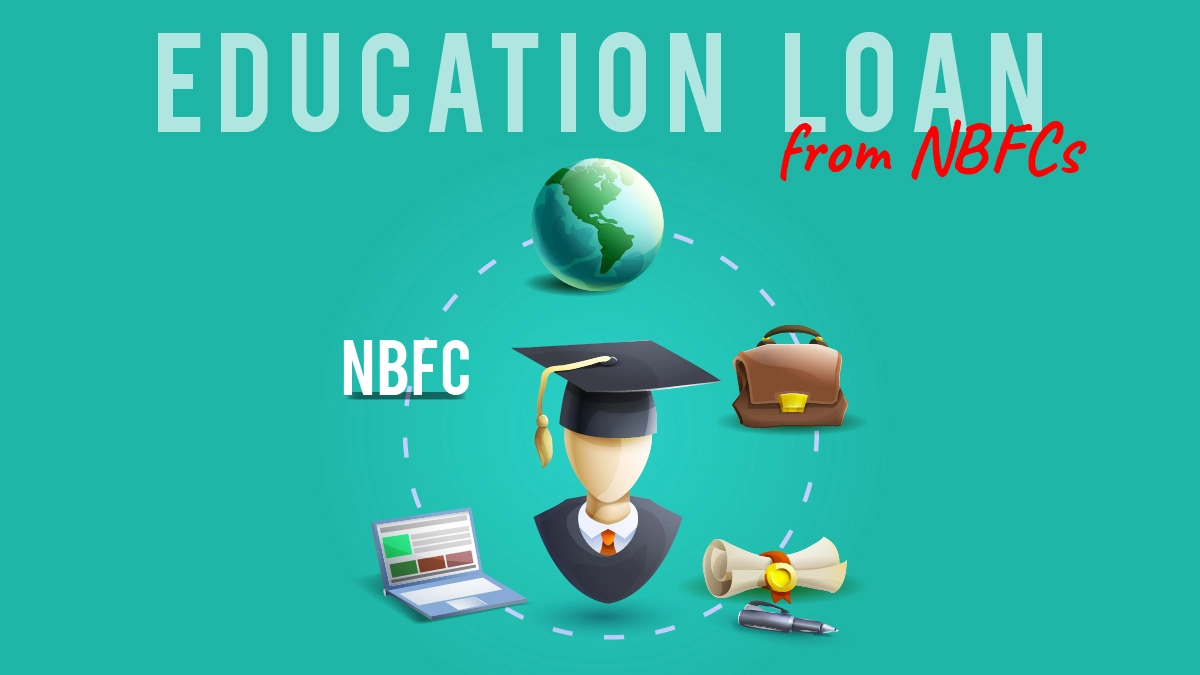https://www.wemakescholars.com/blog/co-applicant-eligibility-criteria-for-education-loan
Abroad Education Loan | Updated
.jpg)
Did you know that each year, a number of education loan applications get rejected, not because the students do not meet the eligibility criteria, but because their co-applicants don't?
Yes, lenders (especially private lenders) scrutinize your co-applicant profile thoroughly before approving any application for an education loan, and so they have laid some requirements for the education loan co-applicant as well.
This article discusses the requirements in detail which have to be fulfilled by any particular co-applicant for an education loan. You can also watch the 39th episode of our LoanFlix series below which is on the same subject -
Who is a co-applicant? What role do co-applicants play in the education loan process?
A co-applicant who can also be referred to as a co-borrower or co-signer is a member of your family (ideally your parents) who co-signs the loan application and bears responsibility for repayment if for any reason you couldn’t. And also banks need someone here in India to contact for any due diligence while you are abroad.
Now, many students get confused between a primary co-applicant and a financial co-applicant. In one of our previous articles- "Education loan without co-applicant"- we have properly explained the differences between the two which you can read to clear any sort of confusion.
In short, having a primary co-applicant is mandatory while taking an education loan whether from public lenders or private lenders. On the other hand, private lenders (private banks and NBFCs) ask for a financial co-applicant in the loan process, and a primary co-applicant and financial co-applicant can be the same person.
Also to know when you need a financial co-applicant? read the article mentioned above.
Who can be an education loan co-applicant?
It is a must that you have a co-applicant for your education loan procedure. Not everyone from the family can be a co-applicant because there are certain eligibility criteria for co-applicants set by lenders (which is discussed later in the article).
Here is the table on who is accepted as a co-applicant by different lenders (preference-wise)-
|
Lenders |
Accepted as co-applicant |
|
Government banks |
Parents / Parents-in-law, Siblings, Parents siblings, Spouse, First cousins |
|
Private banks |
Parents / Parents-in-law, Siblings, Spouse |
|
NBFCs |
Parents / Parents-in-law, Siblings (preferable brother over sister), Spouse, Brother-in-law, Parents siblings, First cousins |
Education loan co-applicant eligibility criteria
The eligibility criteria for a co-applicant set by most of the government banks are not as rigid as those set by private banks and NBFCs. This is mostly due to the type of loan these lenders provide to students.
Government banks provide collateral education loans for the loan amount above 7.5 lakhs whereas private lenders can provide up to 60 lakhs without needing collateral i.e education loans without collateral.
This is why the requirements of a co-applicant for a collateralized education loan from a government bank and a non-collateralized education loan from a private lender differ.
The following parameters form the basis of the education loan co-applicant requirements of all types of lenders-
1. CIBIL Score
A CIBIL score refers to the benchmark credit score allotted to individuals based on their previous financial activities. An individual’s CIBIL score is taken into consideration by all lenders before processing education loan applications.
The nominal CIBIL score that all individuals who are most likely to be named as co-applicants are required to maintain is 685 in order to be considered eligible.
Private lenders are pretty strict when it comes to CIBIL scores and do not usually accept scores below that. However, since government bank education loan is lent on the basis of collateral security they can accept CIBIL score as low as 600 if it is due to legitimate and pardonable reasons.
But if the reason behind a low CIBIL score is loan write-off, a loan settlement, etc., then even government banks may reject an education loan application.
Read more about How does CIBIL score affects your education loan?
2. Last 2-3 years IT Returns Documents
ITR documents are one of the most important requirements of the education loan process. All lenders, private lenders in particular, are very strict about education loan co-applicants submitting their ITR documents in order to get an education loan.
Government banks still accept co-applicants who do not possess all the two years’ ITR documents. However, it is extremely difficult to get an unsecured education loan without the relevant ITR documents in place.
The WeMakeScholars team is well-experienced with even the smallest education loan co-applicant requirements and hence will be able to guide and assist you in the end-to-end process of securing abroad education loans despite your status.
Read our article-" Education loan documents required by Private and Government banks" to know what all documents are required of a salaried and self-employed co-applicant.
3. Income Proof/Business Proof
The income proof to be submitted by co-applicants who are salaried are limited only to their salary slips or bank account statements of the previous six months reflecting the timely salary transactions. However, co-applicants who are self-employed often have trouble submitting legitimate income proofs. This is especially applicable to education loan co-applicants who run small-scale businesses.
Co-applicants running a small-scale business, for example, selling sarees from their own homes and have not registered their business, can provide photographs of the stock being sold by them, proving the same, to the lending banks as proof of income.
Other than that, the following documents can be submitted as income proof, apart from the ones mentioned in the above paragraph.
-
- GST registration proof
- Vendor bills
Education loan co-applicants who run well-established businesses are required to submit the following documents in order to get education loans.
-
- Profit/Loss statements of their business
- Financial statements of their business account for the past six months.
However, if your education loan process is at a standstill due to the absence of the relevant income proofs, do get in touch with our financial team for assistance.
4. Income Amount
The income of your co-applicant doesn't matter for a collateralized loan from government banks. However, as with private lenders (except international lenders), the income of a co-applicant is of great importance as they are required to initially pay the accrued interest during the moratorium period.
Individuals earning at least INR 30,000 per month are considered eligible to be named as education loan co-applicants. Lenders do consider individuals who earn lesser monthly salaries as co-applicants. However, INR 30,000 is the recommended minimum monthly salary. A few private banks also have education loan schemes given solely based on your co-applicants income.
5. Age, Retirement Status
Private lenders are reluctant to accept individuals of old age (around 60) or a retired person or even a farmer as a co-applicant, while government banks have no such issue.
Students can name individuals who are retired professionals, farmers, and those who do not have a stable income, as primary co-applicant for education loans in government banks. Again, you need to have the collateral to be pledged as security.
Must read: Government Bank Education Loan Benefits for students
A lot of students are unaware of the important aspects of an education loan when they begin the process. Such students are very easily misguided about various education loan terms by lenders when they try to apply directly. One of the major reasons behind this phenomenon is that these bank officials are themselves not aware of the exact provisions laid out by their respective organizations with regard to abroad education loans.
This is why students who apply for their abroad education loans through WeMakeScholars are at an advantage and get their education loans sanctioned way earlier and in a hassle-free way as compared to the others. The financial team of WeMakeScholars consists of professionals who have had the experience of handling even the most complicated education loan applications for the past four years. The expertise and knowledge gained from this experience are what students get to avail themselves of when they register with us for their abroad education loan process.
So, if you are looking for the right kind of guidance and assistance for your abroad education loan process, do get in touch with them.



![Education Loan for Working Professionals [Executive MBA] Education Loan for Working Professionals [Executive MBA]](https://www.wemakescholars.com/uploads/blog/Education-Loan-for-working-professionals.webp)
Kindly login to comment and ask your questions about Scholarships & Education Loans